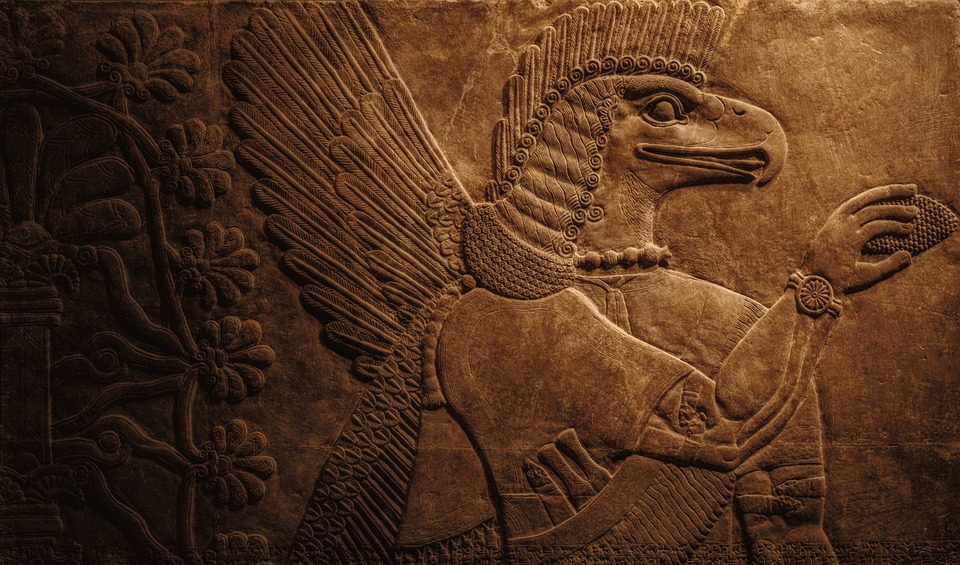
The Assyrian Empire, which existed from the 24th century BC to the 7th century BC, had a profound impact on the Middle East, especially in terms of cultural, religious, and political developments. In this essay, we will examine the legacy of the Assyrian Empire for later civilizations in the Middle East.
One of the most significant contributions of the Assyrian Empire was the development of a highly efficient and organized administrative system. This system allowed the Assyrians to govern their vast empire effectively, which extended from modern-day Iraq to Egypt and Iran. The Assyrians established a centralized government that was divided into provinces, each of which was governed by an appointed governor or satrap. The governors were responsible for maintaining law and order, collecting taxes, and overseeing public works projects such as the construction of roads and bridges. This system of governance influenced later civilizations in the Middle East, such as the Persian Empire, which also relied on a highly centralized administrative system.
Another significant contribution of the Assyrian Empire was its military prowess. The Assyrians were known for their highly trained and disciplined army, which was equipped with advanced weapons and tactics. The Assyrians used chariots and cavalry to devastating effect, and they were also skilled in siege warfare. The Assyrians conquered numerous cities and kingdoms, including Babylon, Syria, and Egypt. This military strength influenced later civilizations in the Middle East, such as the Babylonians, Persians, and Greeks, who all developed highly advanced military systems.
The Assyrians also made significant contributions to art and architecture. They developed a unique style of art that was characterized by intricate carvings and reliefs. Assyrian art often depicted scenes of warfare, hunting, and royal court life. The Assyrians also built impressive palaces and temples, many of which were adorned with elaborate carvings and sculptures. The Assyrian style of art and architecture influenced later civilizations in the Middle East, such as the Babylonians and Persians, who also developed impressive architectural styles.
The Assyrians were also known for their religious beliefs and practices. The Assyrians worshiped a pantheon of gods and goddesses, and they believed in the afterlife. The Assyrian religion influenced later civilizations in the Middle East, such as the Babylonians and Persians, who also developed complex religious beliefs and practices.
Another significant contribution of the Assyrian Empire was its advancement in technology. The Assyrians were skilled metalworkers, and they produced advanced weapons and tools. They also developed an early form of plumbing and irrigation, which allowed them to build sophisticated irrigation systems that transformed the arid lands of Mesopotamia into fertile agricultural land. This technological advancement influenced later civilizations in the Middle East, such as the Babylonians and Persians, who also developed advanced technologies.
The Assyrian Empire also left a lasting impact on language and literature. The Assyrians developed a system of writing called cuneiform, which was used to write the Assyrian language. The Assyrians also produced a significant amount of literature, including epic poems, historical chronicles, and religious texts. These works influenced later civilizations in the Middle East, such as the Babylonians and Persians, who also developed their own systems of writing and produced significant works of literature.
In addition to its contributions to culture, technology, and governance, the Assyrian Empire also had a significant impact on the development of international relations. The Assyrians developed a system of diplomacy that allowed them to maintain peaceful relations with neighboring kingdoms and empires. They also established a system of tribute, which allowed them to extract resources from conquered territories without the need for direct military intervention. This system of diplomacy and tribute influenced later civilizations in the Middle East, such as the Babylonians and Persians, who also relied on diplomacy and tribute to maintain peaceful relations with neighboring kingdoms.
In conclusion
In conclusion, the Assyrian Empire had a significant and lasting impact on later civilizations in the Middle East. Its contributions to administrative, military, artistic, religious, technological, linguistic, and diplomatic developments were all instrumental in shaping the region’s cultural and political landscape. The Assyrian Empire’s legacy can be seen in the Babylonian, Persian, and Greek empires, as well as in modern-day Iraq, where many of its ruins and artifacts can be found. Overall, the Assyrian Empire’s contributions to Middle Eastern civilization are a testament to its ingenuity, organization, and enduring influence.







